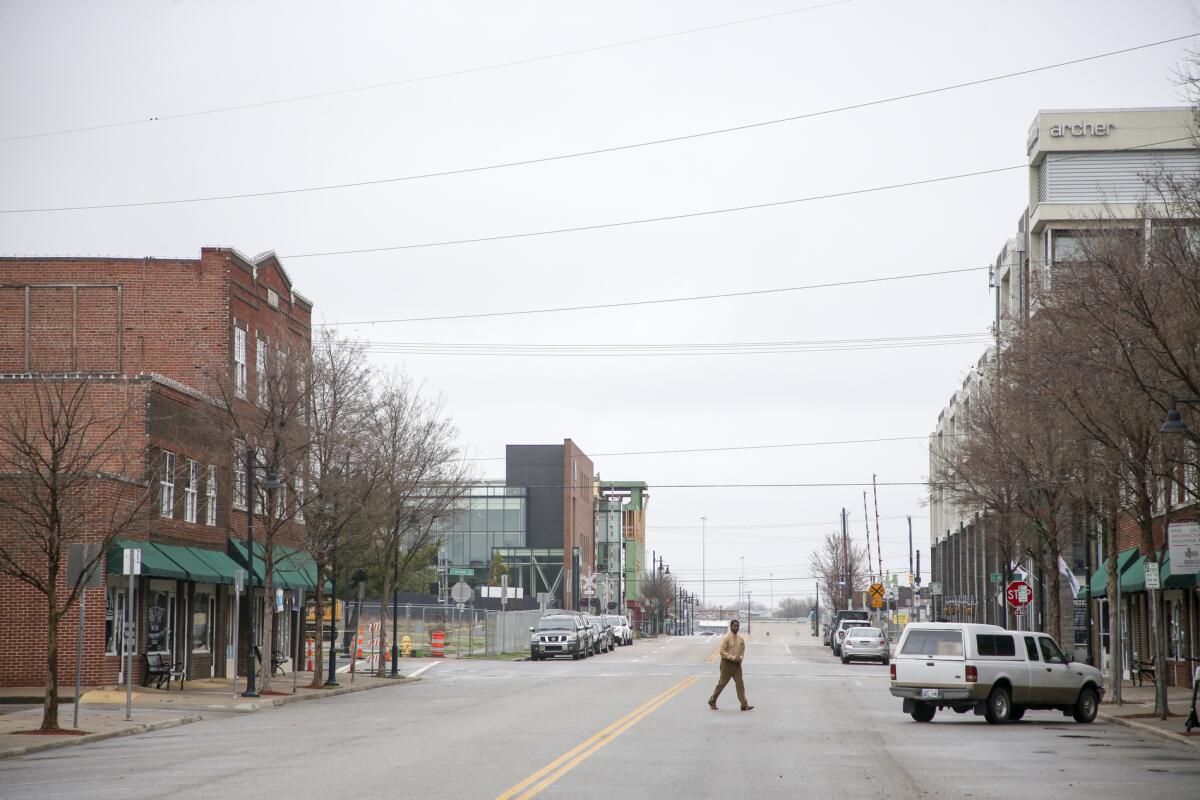Letters to the Editor: 100 years after the Tulsa massacre, denial of systemic racism persists

- Share via
To the editor: The Times’ editorial on the 100th anniversary of the Tulsa massacre describes the current situation in which “Black Americans have less access to healthcare, face more hurdles in accumulating wealth and accessing capital, often are educated in de facto segregated schools, and face harsher police scrutiny and more severe criminal penalties.”
Each of these facts considered separately should be inarguable for anyone of any political persuasion. Rather than having to list each fact every time this inequity is discussed, we could give this state of affairs a name that would describe it — maybe something like “systemic racism.”
To those who deny that there is such a thing as systemic racism, I ask what other term would better describe it?
Larry Macedo, West Hills
..
To the editor: I grew up in 1960s Oklahoma in a small, white, rural community. The destruction of Greenwood in Tulsa was never mentioned in our required 9th grade Oklahoma history class. I am 63 now and live in California, where I learned about the 1921 massacre just a few years ago.
This fits a pattern. I could tell you some fairly shocking stories about a culture in which oppression by whites was not just accepted, it was also expected.
Your article doesn’t mention the events that journalist David Grann wrote about in “Killers of the Flower Moon,” a fascinating read about how white Oklahomans (in the area where I was raised) stole from Native Americans in the early 20th century when oil was discovered on their lands. It’s an example of how institutional racism and lack of adequate federal protection led to murder and violence against those whom the laws were meant to oppress.
Those victims’ descendants need restitution as well.
Cathryn Roos, La Habra
..
To the editor: Often neglected as one of the important legacies of the 1921 Tulsa massacre is that it changed the conduct of war forever.
This was the first time in history that airplanes were used for the indiscriminate bombing of civilians. It paved the way for the bombing of residential neighborhoods in Guernica, Spain, in 1937. At the time, there was public outrage, and many wanted the pilots to be tried as war criminals.
Instead, the mass indiscriminate killing of civilians became accepted and routine. More than 100 million people died in wars in the 20th century, most of them civilians. It all began exactly 100 years ago in Tulsa, Okla.
Roger Johnson, San Clemente
More to Read
A cure for the common opinion
Get thought-provoking perspectives with our weekly newsletter.
You may occasionally receive promotional content from the Los Angeles Times.






